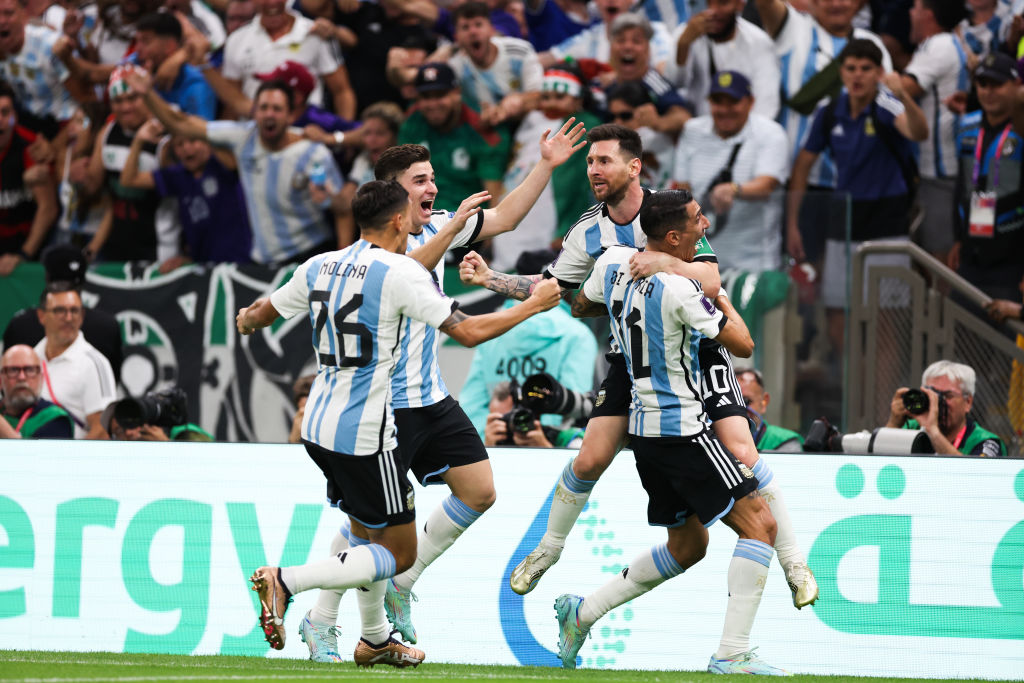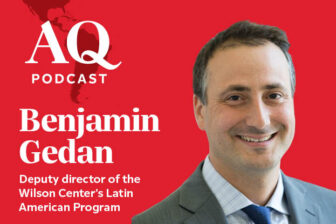BUENOS AIRES — A real-life conversation between a father and daughter went viral last week, after they fought over whether he had to skip watching the Argentina-Mexico World Cup match to attend her graduation ceremony. “I would take out a kidney and give it to you … don’t ask this of me,” he pleaded in a voice message leaked on Twitter. He also cursed the entire school administration and assured her that the physical diploma is utterly meaningless.
There are six Latin American countries in this year’s World Cup, and every one of them hopes a victory might boost national morale. But the viral family spat points to a larger truth: Argentina, beleaguered by the worst inflation in 20 years, rising poverty and a host of other problems, would particularly benefit from its first championship since 1986—and not just because it would mean Lionel Messi’s first World Cup title.
Indeed, a poll found that 77% of Argentines believe the tournament results will influence the national mood. Politics and soccer have long mixed here: The 1978 World Cup was hosted by a military junta hoping to have the world ignore its systematic human rights violations. The shameful circumstances tainted Argentina’s victory. Diego Armando Maradona’s goals that brought the 1986 victory have become tied in our national psyche to the endless potential of an Argentina recently returned to democracy (and willing to bend the rules a bit, too). Argentina’s upset loss in the 2002 group stage felt like a continuation of the economic, social and political crisis that had exploded a few months earlier.
This time around, the potential downsides, including possibly losing early in the tournament, explain why President Alberto Fernández’s government has taken a cautious approach to the usual World Cup bonhomie. Fernández reportedly asked cabinet members to stay away from Qatar this month—the government has sought to pass austerity measures, and dollar reserves are a particular concern. The optics of an expensive international trip to a sporting event would not look good.
Similarly, a national heartbreak could worsen political tensions just in time for December, traditionally a difficult time of year in terms of protests in Argentina. And fanaticism only goes so far: Labor Minister Kelly Olmos had to backtrack after saying in an interview that the priority this month is on soccer rather than taming inflation, currently running at 88%.
Fernández himself was never expected to travel to Qatar. Argentine presidents avoid high-stakes matches for fear of being labeled “mufa,” slang for bad luck, if the Argentine team loses—as occurred in the 1990 World Cup in which Argentina, then reigning champions, lost to Cameroon in their opening match, attended by then-President Carlos Menem. Last week, the Twittersphere was alight with criticism of former President Mauricio Macri, who attended Argentina’s ignominious first match against Saudi Arabia, which it lost in one of the most shocking World Cup upsets of all time.
Listen to this episode and subscribe to The Americas Quarterly Podcast on Apple, Spotify, Google and Soundcloud
Superstition runs high in Argentina’s soccer culture in general, and never more so than during World Cup season. It is not unusual to insist on repeating the circumstances in which a person watched a victorious match to replicate exactly, “por cábala,” the group of friends and location for as long as the winning streak lasts. (Journalists actually report, in detail, on where major politicians choose to screen games.)
Argentina’s soccer fanaticism is unique, explained anthropologist Javier Bundio. “I don’t know if there is another country where soccer is culturally so relevant to a person’s social and personal identity. Soccer functions as a primary identity, even more important than religion.”
Bundio’s research focuses on the songs soccer fans sing to encourage their teams and disparage others. The “cantos de cancha” are such a notable feature of Argentina’s sporting culture that fans from other countries come to study how popular tunes are adapted to sporting ends. These songs are a window into Argentine society, Bundio said. “Football is the place where everything emerges faster, there is generally no censorship, the fan expresses himself how he wants, and we can see things that would be hidden in other areas.”
Indeed, stadiums have been places of political protest and popular resistance over the years: from the 2018 chants against Macri that preceded his electoral loss the following year, to the throwing of papers onto the field in defiance of the military dictatorship during the 1978 World Cup. The tune of the iconic protest slogan, “que se vayan todos,” which protesters chanted as they toppled a government in 2001, originated from a stadium chant. In fact, the first song adapted for a canto de cancha was the “Marcha Peronista” in the 1950s, when the party and all its symbols were prohibited by the ruling dictatorship, according to Bundio. And the bleachers of Argentina’s nascent female soccer leagues resound with anti-machismo chants.
Historically, soccer has been a tool for nation-building, noted Bundio, and Argentina’s governments (especially the those of former President Juan Perón) have been no exception. Indeed, cheering on Argentina’s team this year is a welcome moment of national unity in a country of deep political polarization. It is perhaps our most unanimous area of agreement.
But, once you delve past the match shut-downs and the deep-seated fanaticism, it is clear that Argentina’s problems cannot be masked by a victory, which would only have a short-term (albeit euphoric) political impact. Win or lose, the country’s significant social and economic woes will remain. The elections next year do not hinge on obtaining that trophy in Qatar. The kerfuffle over the graduation ceremony? It turned out the girl was playing a joke on her father—no school here would actually hand out diplomas during an Argentina match.
—
Timerman is a freelance reporter in Buenos Aires.








